Effectiveness of Women in Politics and Improving Gender Equality in South Sudan
This report argues that, in order to improve women’s participation in politics and promote gender-responsive policies in the country, there is a need to enlarge government capacity for women’s leadership by introducing equal gender quotas for decision-making positions. Summary Women’s participation in politics is an important measure of gender equality in a country, one that […]
Thinking about Borderlands: Observations and implications from XCEPT programme research
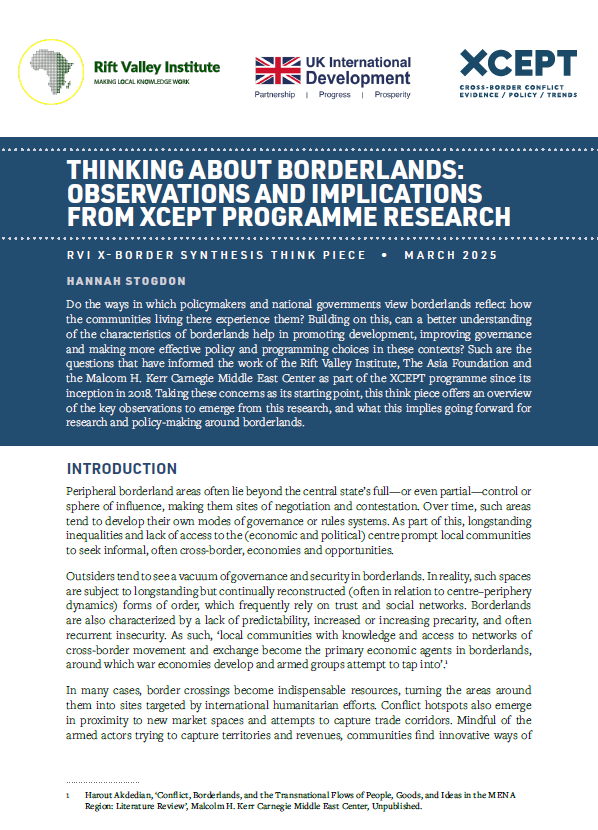
Do the ways in which policymakers and national governments view borderlands reflect how the communities living there experience them? Building on this, can a better understanding of the characteristics of borderlands help in promoting development, improving governance and making more effective policy and programming choices in these contexts? Such are the questions that have informed […]
Making Sense of Borderlands
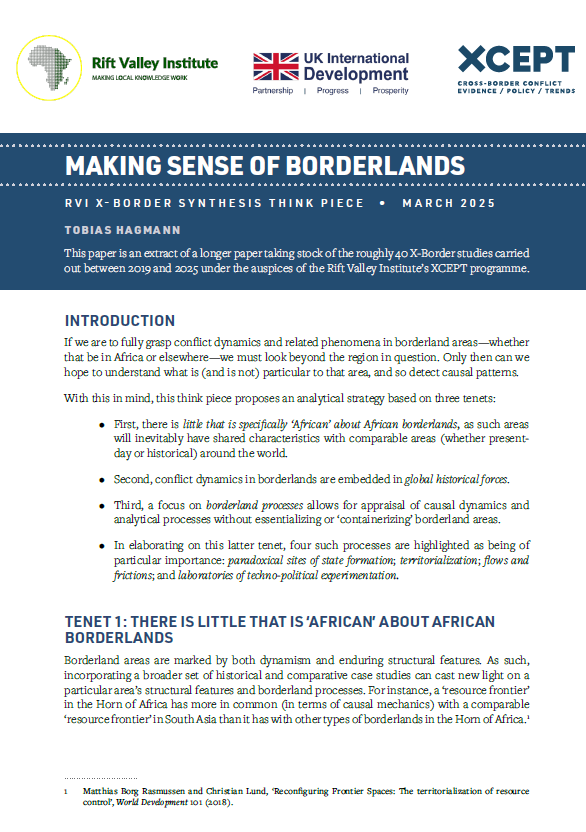
This think piece is an extract of a longer paper taking stock of the roughly 40 X-Border studies carried out between 2019 and 2025 under the auspices of the Rift Valley Institute’s XCEPT programme. If we are to fully grasp conflict dynamics and related phenomena in borderland areas—whether that be in Africa or elsewhere—we must […]
XCEPT Local Research Legacy: Sharing the experiences of women amid agricultural transitions in the borderlands
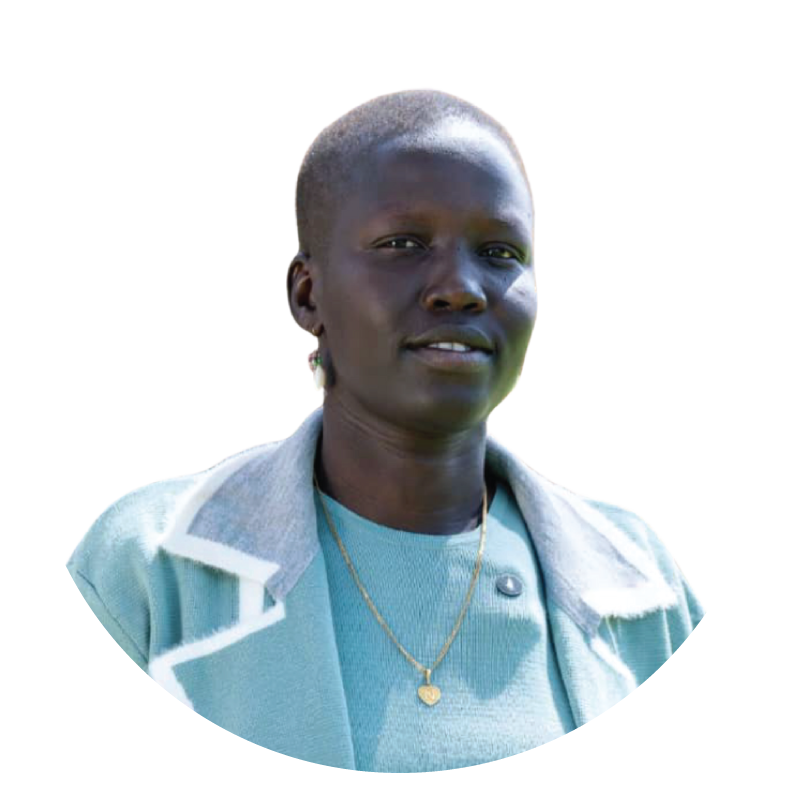
I became involved in the Cross-border Conflict Evidence, Policy, and Trends (XCEPT) programme’s Local Research Network (LRN) at its inception in 2018. During the following years, the network introduced me to a wider community of researchers who share a similar interest in cross-border issues. This has led to extensive knowledge sharing and fruitful collaborations, particularly in […]
XCEPT Local Research Legacy: How collaborative research and mentorship approaches have shaped my research capacity and interest

I was first invited to join the Cross-border Conflict Evidence, Policy, and Trends (XCEPT) programme in 2019, having previously worked with the Rift Valley Institute (RVI) on research in South Sudan. This innovative project brought together international experts and early career researchers from across Africa and Asia under the umbrella of the Local Research Network (LRN). I […]
2025 SUDAN AND SOUTH SUDAN COURSE
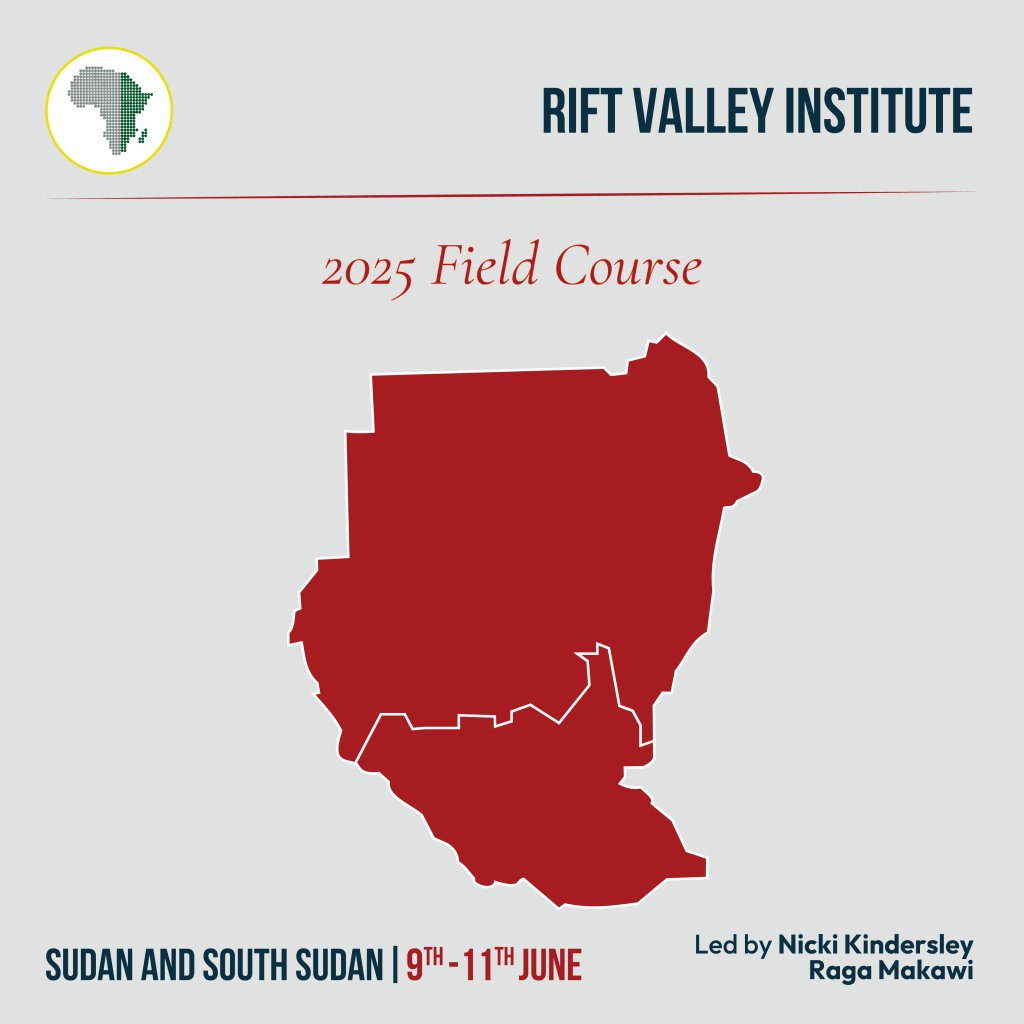
9-11 JUNE 2025 THEME: ‘WAR MAKES STATES AND STATES MAKE WAR’ Led by Nicki Kindersley and Raga Makawi Failed transitions, war and economic collapse have shaped Sudan and South Sudan in the last year. Our course will tackle immediate questions of the dynamics of regime collapse and violent contestation for control and the political economies […]
Trends Analysis: Political instability and conflicts in the Great Lakes, the Horn of Africa and the Sudans
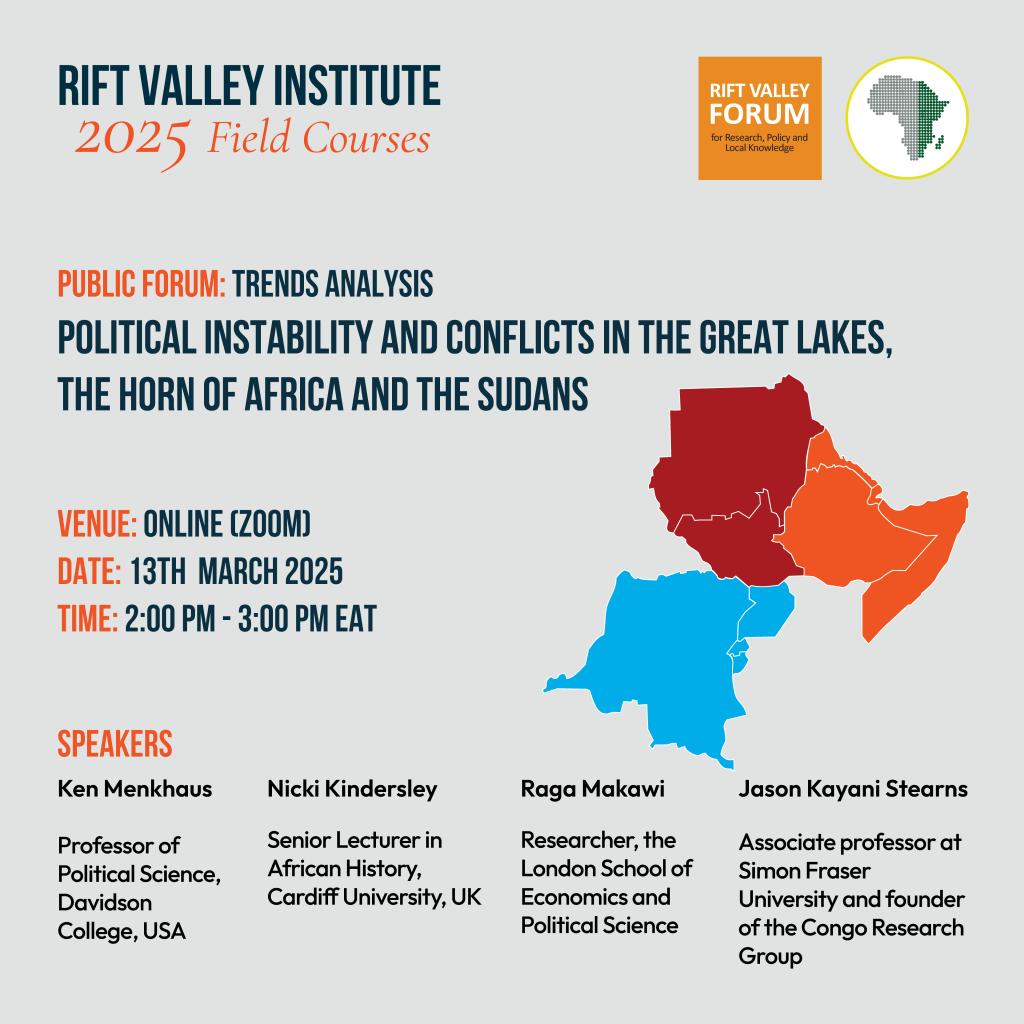
Format: Zoom WebinarDate: Thursday, 13 March, 2025Time: 2:00 PM – 3:00 PM EAT The Horn of Africa, Sudan and South Sudan, and the Great Lakes are all experiencing a surge in political instability and conflict: On 13 March 2025, the Rift Valley Forum will host a webinar that brings together a panel of leading experts—who will also […]
Why South Sudan’s Unity State is drowning in pollution

This blog is part of the XCEPT project carried out by the Rift Valley Institute between May and June 2024. In this blog, the researcher draws heavily on his data from field observation and conversations with the respondents during the research in Mayom and Rubkona counties of Unity State. The researcher is a citizen of […]
‘THE FUEL IS US’: WATER, OIL AND DEBT ON THE SUDAN-SOUTH SUDAN BORDERLANDS
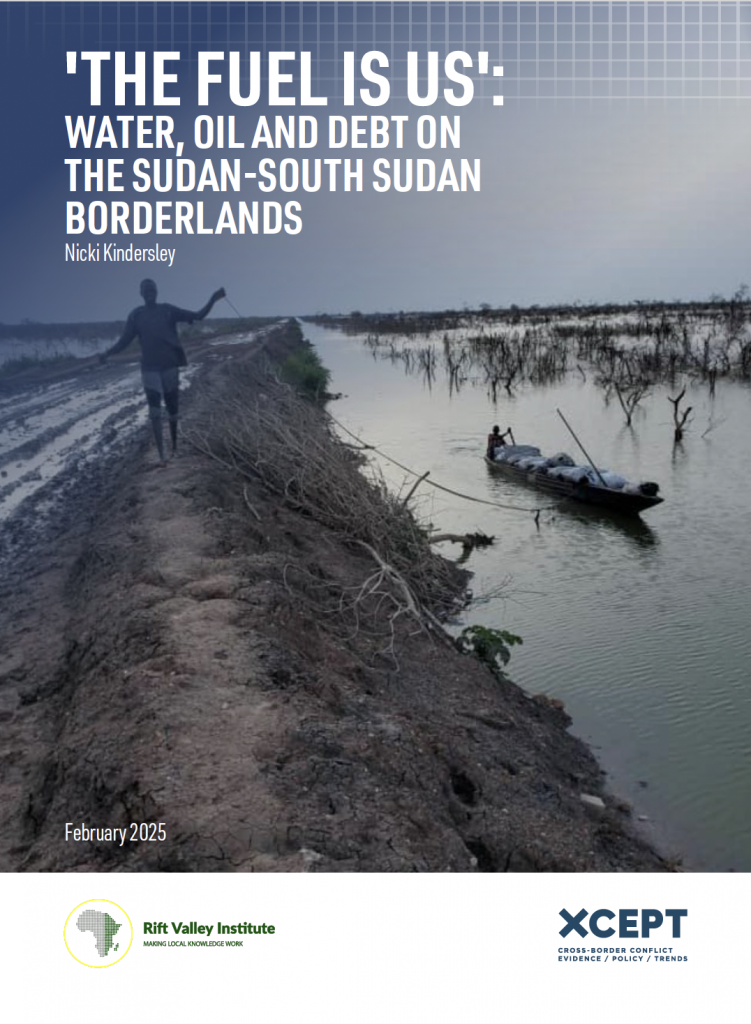
South Sudan and Sudan’s borderlands are run by a patchwork of armed authorities. Since early 2019, when opposition forces were effectively wiped out, these zones of control have remained relatively fixed, even as the war in Sudan drew close to the Nuba Mountains. Although there have been changes since the onset of the war—including the […]
Conflict, displacement and children in paid work in the Sudan-South Sudan borderlands

In this blog, Manal examines the pressures forcing many displaced people, including children, to seek paid labour to supplement dwindling support mechanisms in camps in South Sudan. The author draws on her research in 2024 as part of the XCEPT programme. Child labour in the Nuba Mountains borders In 2011, a brutal conflict between Sudanese […]
